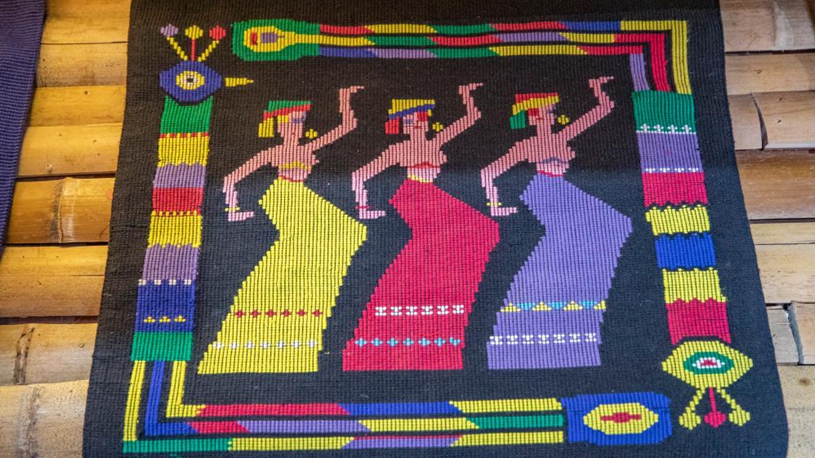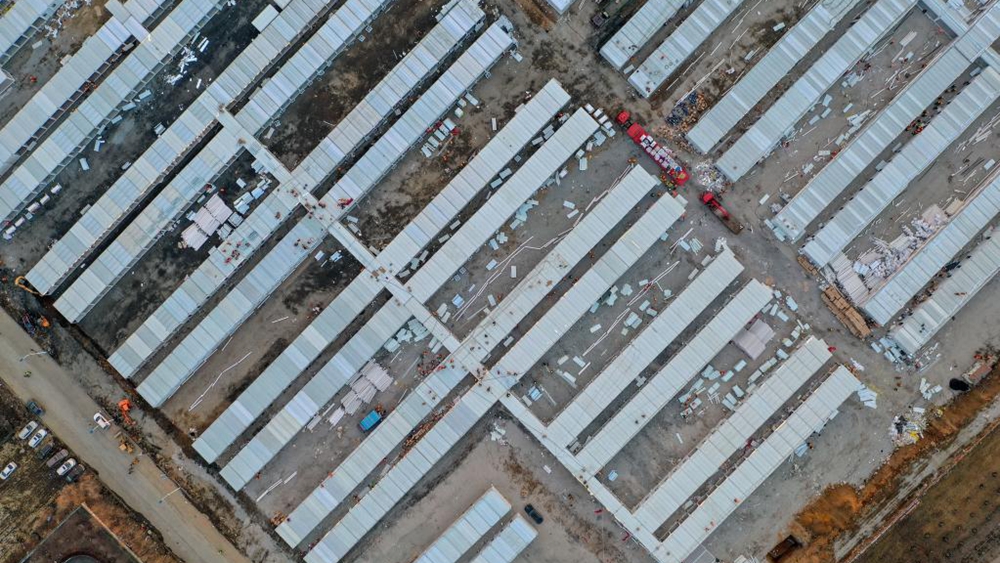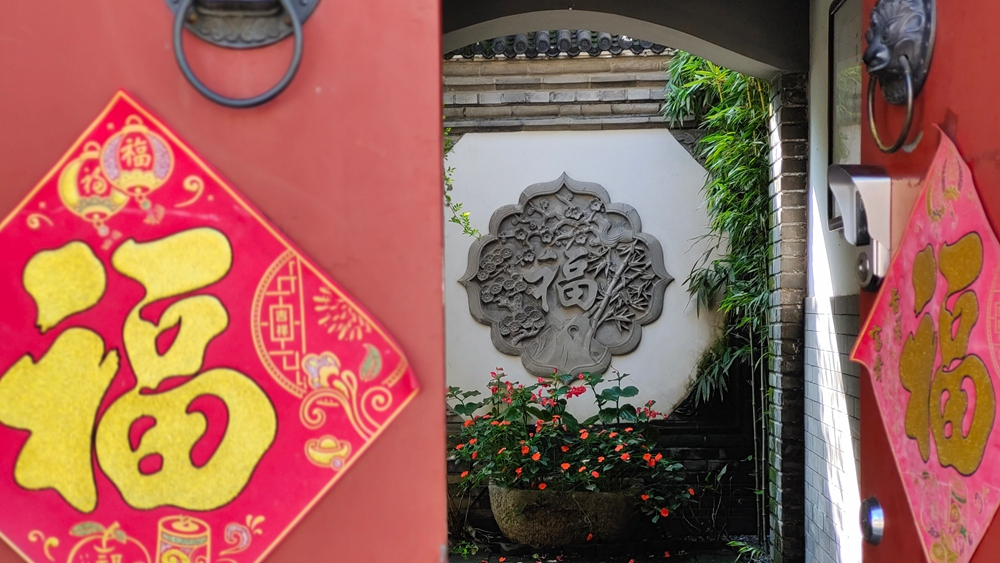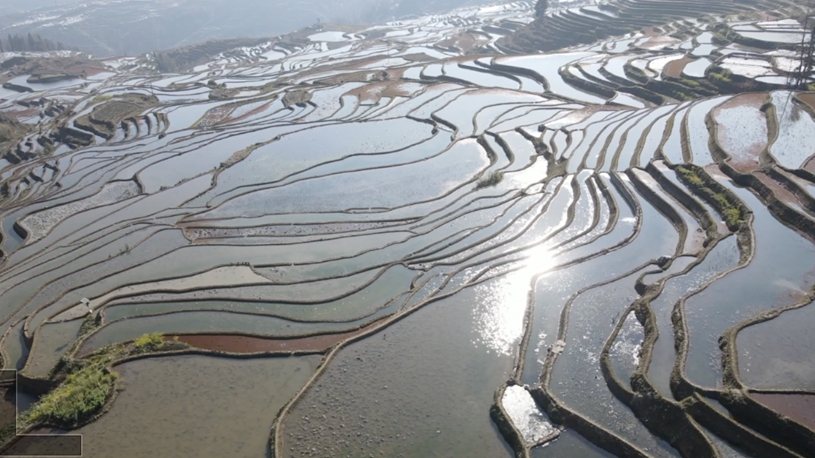
Photo taken by China's Tianwen-1 orbiter on Jan. 22, 2022 shows dust activities in the northern hemisphere of Mars. (China National Space Administration/Handout via Xinhua)
BEIJING, March 24 (Xinhua) -- China's Tianwen-1 orbiter has beamed back high-resolution images of Mars, showing dust storms on the surface of the planet.
Released by the China National Space Administration on Thursday, the new pictures with a resolution of 0.5 meters were captured by a camera on the probe, which has been operating in orbit for 609 days at a distance of 277 million km from Earth.
Track marks left by Mars rover Zhurong can be seen in the pictures. With its 306 Martian days of service, the rover has traveled a total of 1,784 meters on the planet.
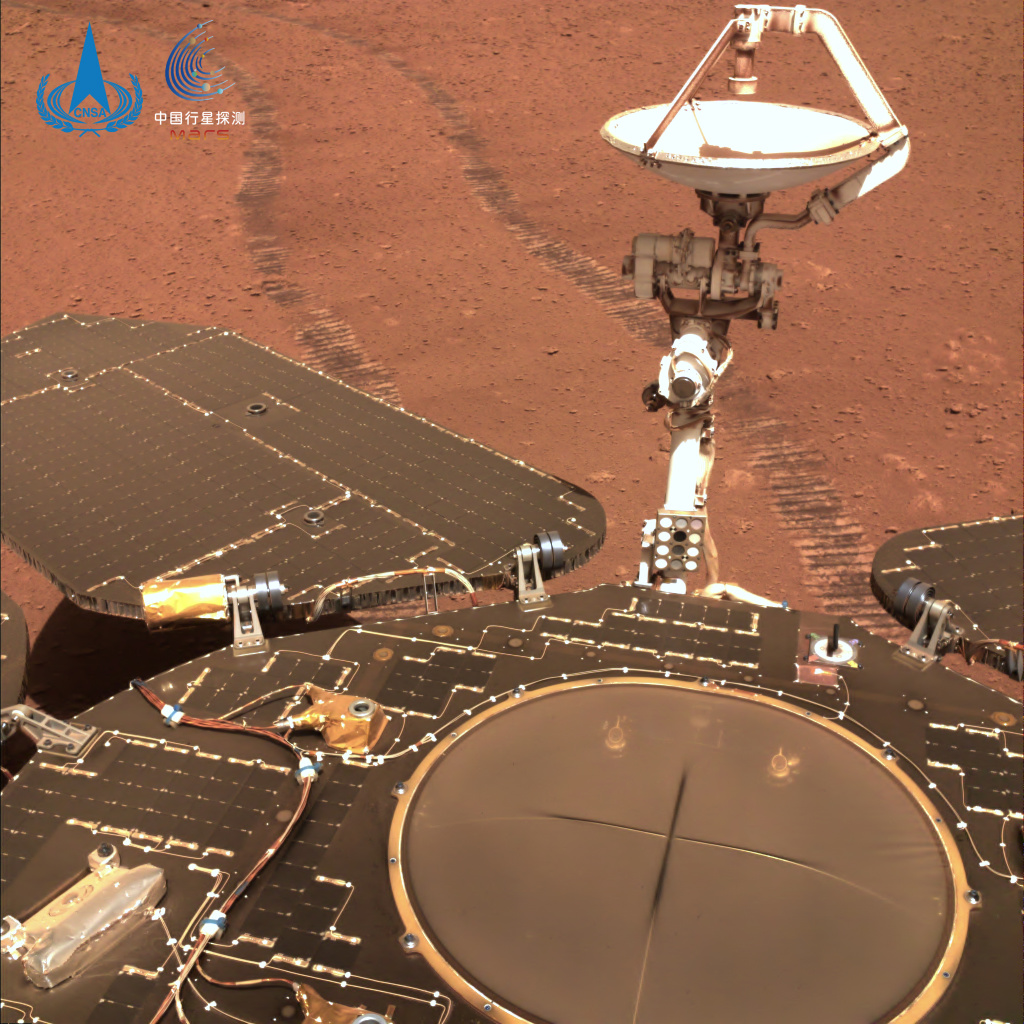
Photo shows the Zhurong rover on Jan. 22, 2022, the 247th Martian day after landing. A layer of dust can be seen on the surface of the rover. (China National Space Administration/Handout via Xinhua)
Zhurong also snapped selfies from Mars. Compared with the images taken shortly after it landed on the planet, the new photos showed a layer of dust accumulated on its surface.
Dust can reduce rovers' power supply. Chinese scientists have specially designed the rover's solar wing to offset the efficiency decline caused by dust coverage.
The rover now has sufficient energy to continue its exploration on Mars, the Chinese space administration said in a statement.
The Tianwen-1 orbiter has monitored dust activities in the northern hemisphere of Mars since late January and sent back pictures of regional dust storms in February.
Though the Martian northern hemisphere is entering the autumn season, during which there will be frequent dust storms, no obvious dusty weather has been observed in the Zhurong rover's inspection area, according to the administration.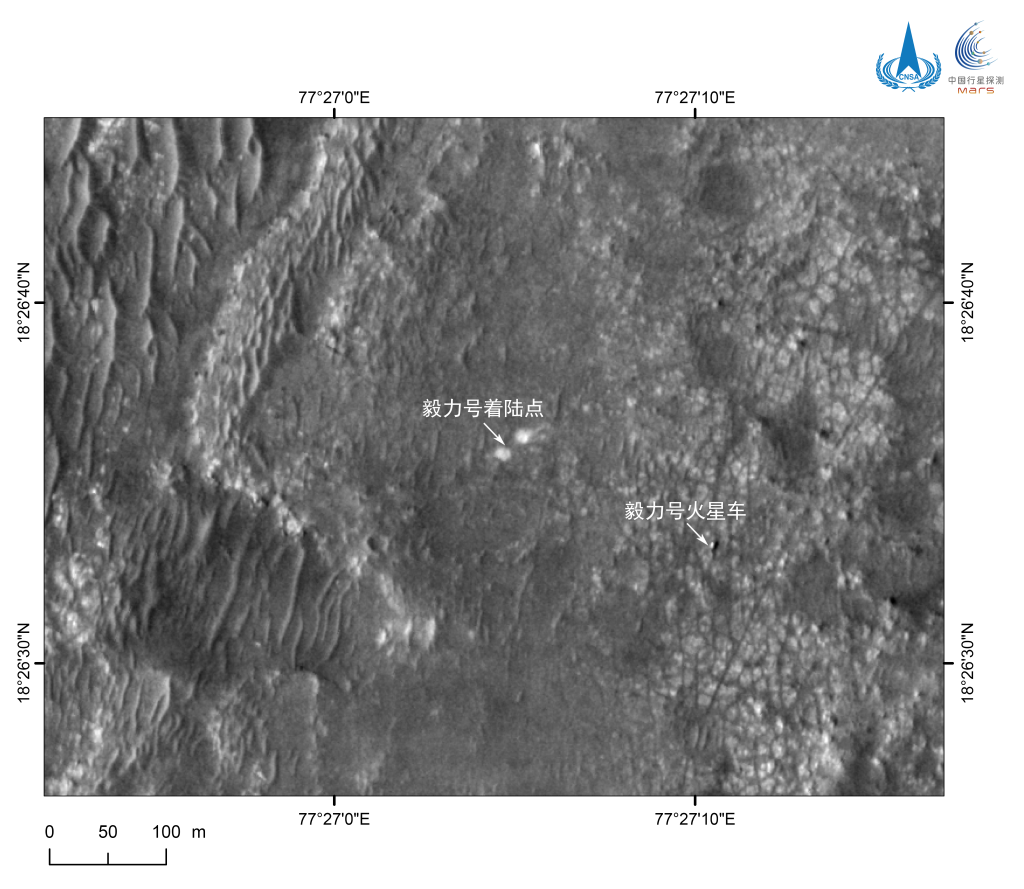
Photo taken by the Tianwen-1 orbiter shows NASA's Mars rover Perseverance. (China National Space Administration/Handout via Xinhua)
China on Thursday also unveiled a picture taken by the Tianwen-1 orbiter on March 7, showing NASA's Mars rover Perseverance while imaging the Jezero Crater, about 200 meters southeast of the American probe's landing site.
Since its launch on July 23, 2020, the Chinese orbiter has been carrying out remote sensing of Mars, focusing on obtaining high-resolution images of craters, volcanoes, canyons, dry riverbeds and other landforms. ■

